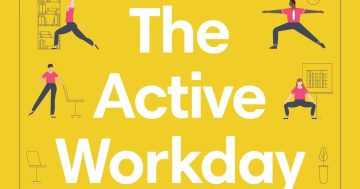Gretchen Rubin* talks to an expert on leadership about happiness, habits and productivity.
 Julie Zhuo writes about technology, design, and leadership on her blog The Year of the Looking Glass and in publications like the New York Times and Fast Company.
Julie Zhuo writes about technology, design, and leadership on her blog The Year of the Looking Glass and in publications like the New York Times and Fast Company.
She’s also written a book about her insights, experiences, mistakes, and conclusions called The Making of a Manager: What to Do When Everyone Looks to You.
It’s a fascinating look at how to manage — especially when your team keeps getting bigger and bigger.
I was able to talk to Julie about happiness, habits, and productivity.
Gretchen: What’s a simple activity or habit that consistently makes you happier, healthier, more productive, or more creative?
Julie: I take 10 to 20 minutes every night before I go to bed to do something that’s just for me.
Mostly it’s lighting a candle and reading a few pages of my ‘book of the moment’, but I also sometimes do crossword puzzles, watch a video, or catch up with friends over text.
I started to do this during a period of my life when I was extremely stressed after coming back to work from parental leave.
I was having trouble falling asleep at night because I was furiously working until my head hit the pillow.
I realised I needed a transition period into sleep — some time that was solely for me.
That’s where this habit started. I’ve slept a lot better since.
Gretchen: What’s something you know now about happiness that you didn’t know when you were 18?
Julie: As time passes, happiness feels less like pure joy and more like deep satisfaction or contentment.
It’s like the flavour has changed from fireworks to a lovely scenic view.
Gretchen: Have you ever managed to gain a challenging healthy habit — or to break an unhealthy habit?
Julie: Fitness is my Achilles heel. I love the idea of being strong and healthy and having a daily regime.
I hate the actual feeling of exercising.
All of those people who rave about getting that ‘runner’s high’, that is the opposite of my experience.
Every time I am exercising the only thing that is in my mind is: “This sucks. When can I stop?”
I’d lapse into months of no exercise.
This was the pattern until about four years ago, when I stumbled upon an insight of building tiny habits.
I started to set a goal of exercising for 10-to-15 minutes a day every morning.
It felt like so little time that there really was no excuse. I could always manage to squeeze it in right before a shower.
I found I was able to keep this habit going indefinitely.
Gretchen: Does anything tend to interfere with your ability to keep your healthy habits or your happiness? (e.g. travel, parties, email).
Julie: I’m pretty good at staying present, but I have been known to succumb to the power of an over-active phone lighting up with pings and e-mails.
I’ve found the best solution is to quarantine the phone for specific hours of the day, especially weekends, so I can focus on spending time with my family.
Gretchen: Is there a particular motto or saying that you’ve found very helpful?
Julie: I don’t have a particular favourite saying or motto, but in starting my blog, one of the quotes I happened upon was from Alice’s Adventures in Wonderland and Through the Looking-Glass:
“I know who I was when I got up this morning, but I think I must have been changed several times since then.”
I liked it because it carried the whimsy of Wonderland, and also because it suggested growth — that every day we can learn and change and become better.
Gretchen: Has a book ever changed your life?
Julie: Mindset by Carol Dweck. I grew up as a perfectionist with the notion that there was a ‘correct’ or ‘best’ way to do everything.
When I read Mindset, I was stunned to discover that this mentality had a name — fixed mindset — and was an incredibly limiting way to think about the world.
The alternative mindset was growth mindset, which meant adopting the stance that there is no such thing as perfect, but everything can be improved with will and effort.
This was so powerful to read and completely changed my perspective on how I approach failure, how I give or receive feedback, how willing I am to take on new challenges.
Every day, I see examples of tension or lack of confidence in the workplace, and so much of it boils down to people’s mindsets.
Gretchen: In your field, is there a common misperception or incorrect assumption that you’d like to correct?
Julie: The Making of a Manager is about management, so here’s one of the biggest misconceptions: That managers know all the answers.
This is a huge fallacy, and makes many early career managers feel secretly inadequate or they come to the table with a case of Saviour’s Complex.
A manager’s job is to help a group of people get to an answer, not to know everything herself.
*Gretchen Rubin is the author of Better Than Before, The Happiness Project, and Happier at Home. She writes about happiness and habit-formation and can be followed on Twitter @gretchenrubin
This article first appeared on Gretchen’s blogsite.











